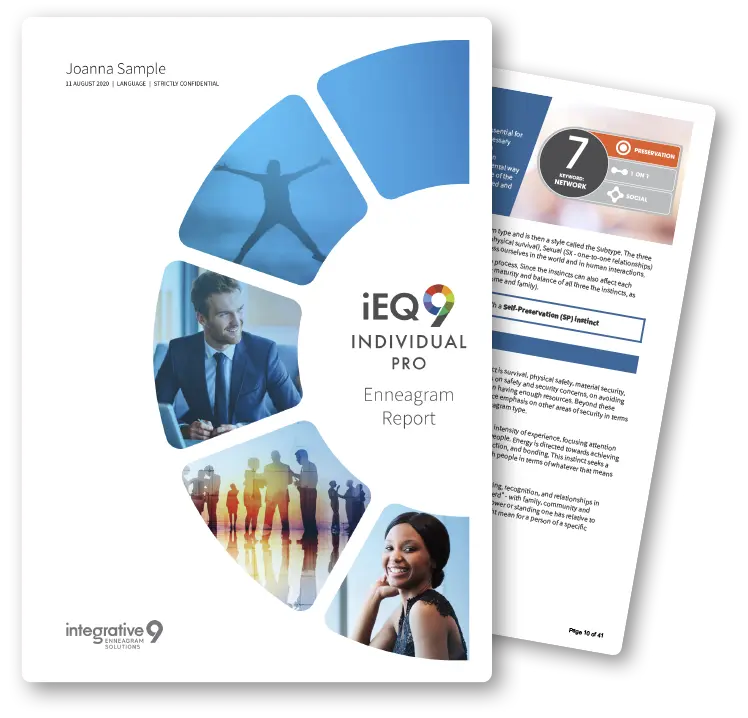
Enneagram Sixes value security and belonging, as this style stems from the motivational need to be safe and prepared. As a result, loyalty and trust are important to Sixes, who strive to be responsible and prepared at all times. At their best, Sixes are courageous and connected to a sense of inner knowing, offering the gift of devotion and trust to themselves and the world around them. Less-healthy Sixes have a tendency to worry excessively, fear letting down their defences and may be experienced as anxious, suspicious or doubting.
Self-Talk
“The world is a threatening and unsafe place. Be prepared. Be loyal. People can count on me. Be careful who you trust. I must not be afraid, but I must not let my guard down. I must protect myself, but I must be loyal ”

There are two ways in which the Enneagram 6 pattern manifests. If it manifests as the phobic pattern, the Six is likely to be very hesitant and cautious as they try to avoid anxious situations and guard against the risk of things going wrong. If it manifests as the counter-phobic pattern, the Six tries to work through anxiety by meeting fearful situations head-on. Most Sixes fall between these two extremes and will move between these tendencies depending on the circumstances and their life context. Most Sixes show some form of risk-taking behaviour as a way of proving to the world and to themselves that they are not afraid. These behaviours may vary from verbal acts of courage to extremely high risk activities. Sixes with a strong counter-phobic pattern are likely to display these activities more frequently than those who have a more phobic pattern. Sixes are known for their ability to work with consistency and with dedication over time. As they take responsibility very seriously, they tend to fully commit to the job or task at hand and demonstrate loyalty and courage.
In their desire to avoid problems, Sixes tend to apply themselves to potential risks and threats in a highly analytical way. This also makes them very attuned to their environment, scanning for possible problems and challenges. Sixes are able to solve and prevent problems, but may also be very sceptical of solutions that seem too easy or simple. This "yes, but" pattern can lead to frequently and overtly challenging both solutions and authority. Sixes are very aware of authority in their thinking. While they hope to have the support and protection of people in authority, they are also very wary of being let down, disappointed or betrayed by those very same people. The Six's internal dialogue is likely to follow a process of asking lots of questions of themselves or consulting an 'internal committee'. They ask questions not only about what is obvious and readily apparent, but also about what is unexpressed and hidden.
Sixes are very familiar with feelings of anxiety and tend to focus on worst-case scenarios in everyday life. These feelings could range from unease, concern and mild worry to panic, dread and terror. As an emotionally reactive style, Sixes have immediate and easy access to their feelings but will also replay concerns and anxieties over time. Even though they are pleased when things go well, Sixes tend not to dwell on positive emotions too much. Sixes tend to project their feelings onto others without necessarily testing them, as an unconscious behavioural pattern. In a bid to manage anxiety, the Six tends to project their own feelings, thoughts, hopes and fears onto others, thereby negating their impact on the Six. They often resist and challenge people because of their own doubts.
Click below to explore the Wings
Type 6 Wing 5: Type 6 Wing 7:The Enneagram Six's drive to create security and support is expressed differently by the three Subtypes.




The Integrative Enneagram Questionnaire is a dynamically adaptive intelligent assessment. It will take you about 30 minutes to complete and it will measure: Enneagram Profile, 27 Subtypes, Centers, Wings, Lines, Levels of Integration and 6 dimensions of Strain.
Get Your Type